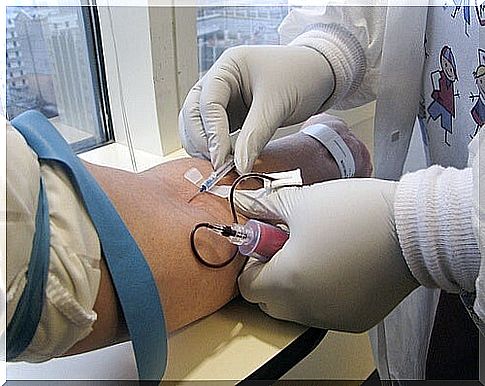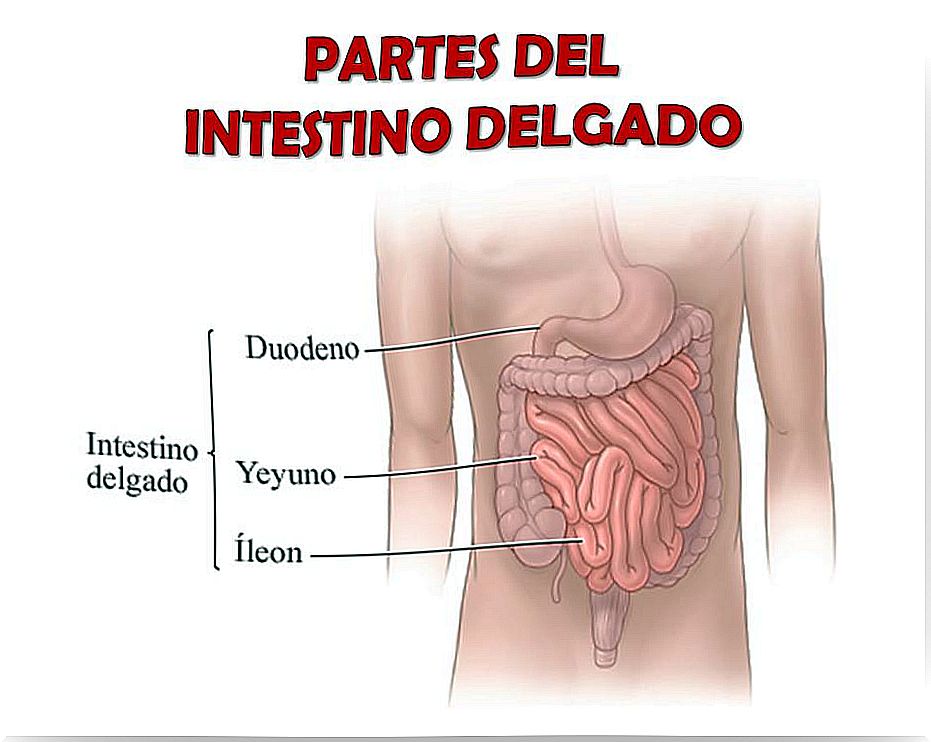Short Bowel Syndrome
Short bowel syndrome is a complex condition characterized by the loss, physical or functional, of a segment of the intestinal surface. The main causes for this to occur are congenital disorders and intestinal infarction or mesenteric ischemia.
This condition makes it very difficult to maintain an adequate nutritional state. Short bowel syndrome brings with it a loss in the ability to absorb nutrients, which creates innumerable difficulties in its treatment.
In spite of everything, through a process of functional and structural adaptation of the intestine it is possible to increase its absorption capacity. However, the prognosis for short bowel syndrome depends on the length and condition of the organ, as well as the cause of the problem and other factors.
What is short bowel syndrome?
Short bowel syndrome is a condition that occurs when a part of the small intestine is lost, either because a child is born without that segment, because it is removed in surgery, or because that area stops working. This causes serious metabolic and nutritional alterations.
Not all loss of part of the small intestine leads to short bowel syndrome. It is only confirmed if the length of the remaining organ, that is, the segment of intestine that remains, is not capable of adequately performing the absorption function.
In general, this condition occurs artificially when there are two of the following surgeries:
- Terminal jejunostomy: part of the jejunum, ileum and colon is missing.
- Jejuno-colic anastomosis: the ileum and the ileocecal valve are missing, so the jejunum and colon are united.
A person with this condition requires macronutrient and electrolyte supplements in order to maintain their health. In the case of children, this is essential for their growth process. Sometimes parenteral feeding or through a vein is required to avoid malnutrition.

Symptoms and causes
According to available data, in Spain the main underlying cause of short bowel syndrome is mesenteric ischemia or intestinal infarction, with 30% of cases. It is followed by tumor obstruction, with 20%, and Crohn’s disease, with 20%. In lower percentages are radical enteritis and chronic pseudo-obstruction or other disorders.
It is estimated that in other countries the figures may be similar. On the other hand, in children the main causes are congenital and perinatal problems.
Necrotizing enterocolitis, which is a severe inflammation in the colon of the newborn, is more common in premature babies or those who spend more time in the neonatal care unit.
As already noted, the lack of a segment of the intestine causes poor absorption of nutrients. This generates a series of symptoms, such as:
- Diarrhea
- Pale, greasy stools
- Very foul odor in stools
- Weightloss
- Dehydration
- Fatigue
To determine that the condition is present, laboratory tests, blood chemistry tests, complete blood count, blood vitamin levels, and stool fat test are usually done. A small bowel X-ray may also be ordered.

Treatment of short bowel syndrome
The main goal of treatment is to ensure that the body receives the nutrients it requires and to offer relief from symptoms. To achieve this, the following measures are used:
- Nutritional therapy: involves following a special diet that includes nutritional supplements suitable for each person. In some cases, intravenous or tube feeding is required.
- Medications: in these cases the administration of support drugs is usually required. There are medicines that help control diarrhea and improve intestinal absorption.
- Surgery: there are cases where it is necessary to perform surgery to lengthen the intestine, called autologous intestinal reconstruction. On other occasions, a surgical intervention is done to delay the passage of nutrients through the intestine or a small intestine transplant is performed.
The short intestine evolves differently
The condition often improves with treatment, especially if it is the result of surgery. In any case, the follow-up by a professional team is imperative for the rest of the patient’s life.
Complications can also appear, such as bacterial proliferation in the small intestine, stones, malnutrition or problems in the nervous system due to vitamin B12 deficiency. It is not an easy-to-handle picture, and only gastroenterology specialists are trained to deal with it.









